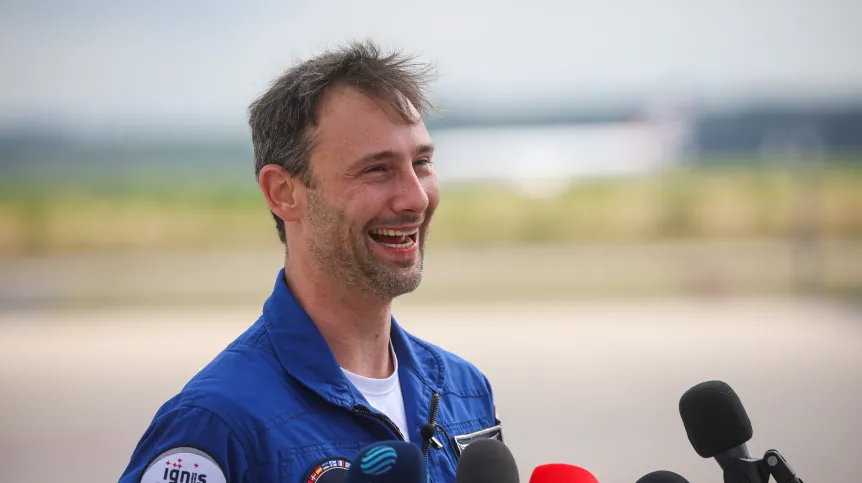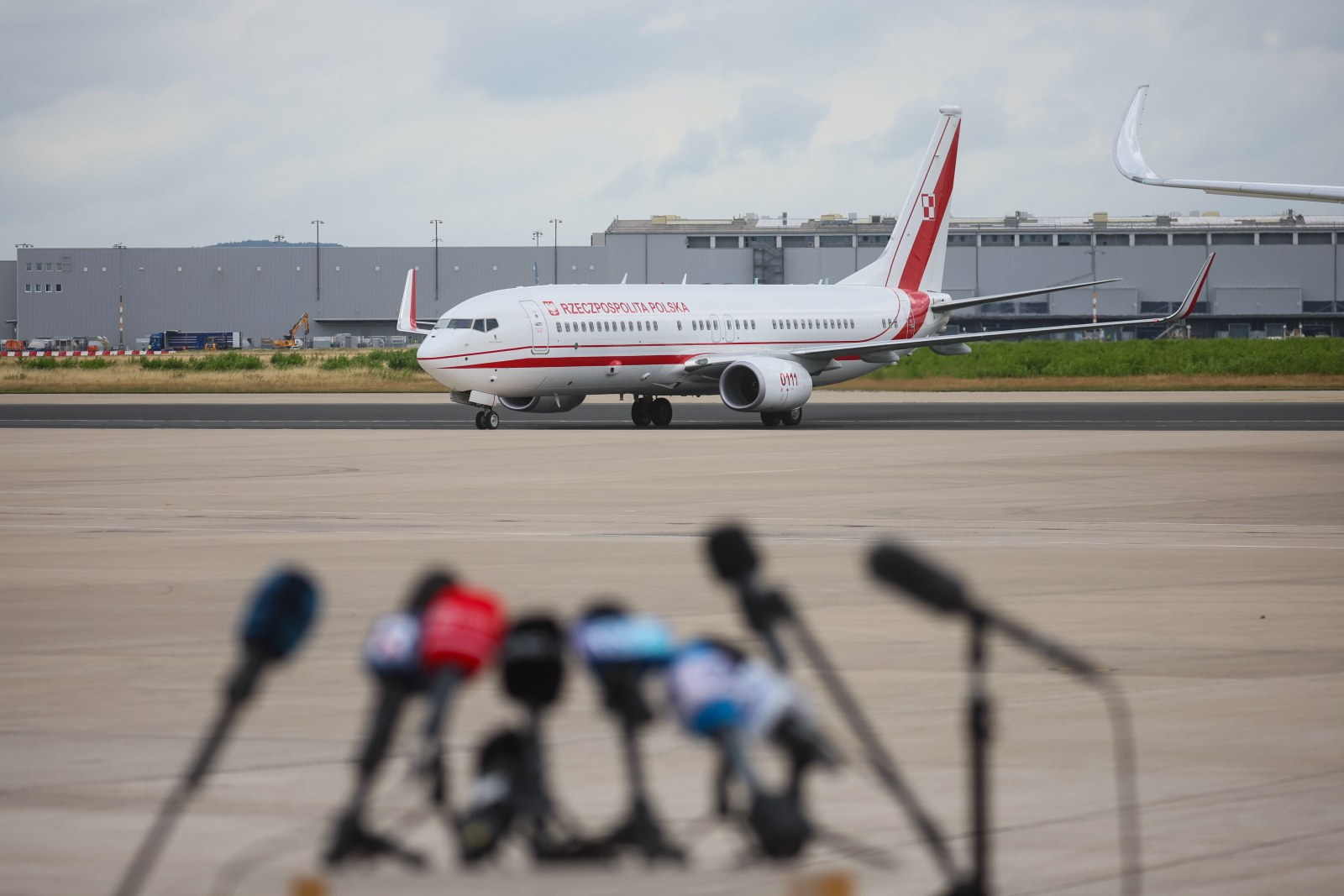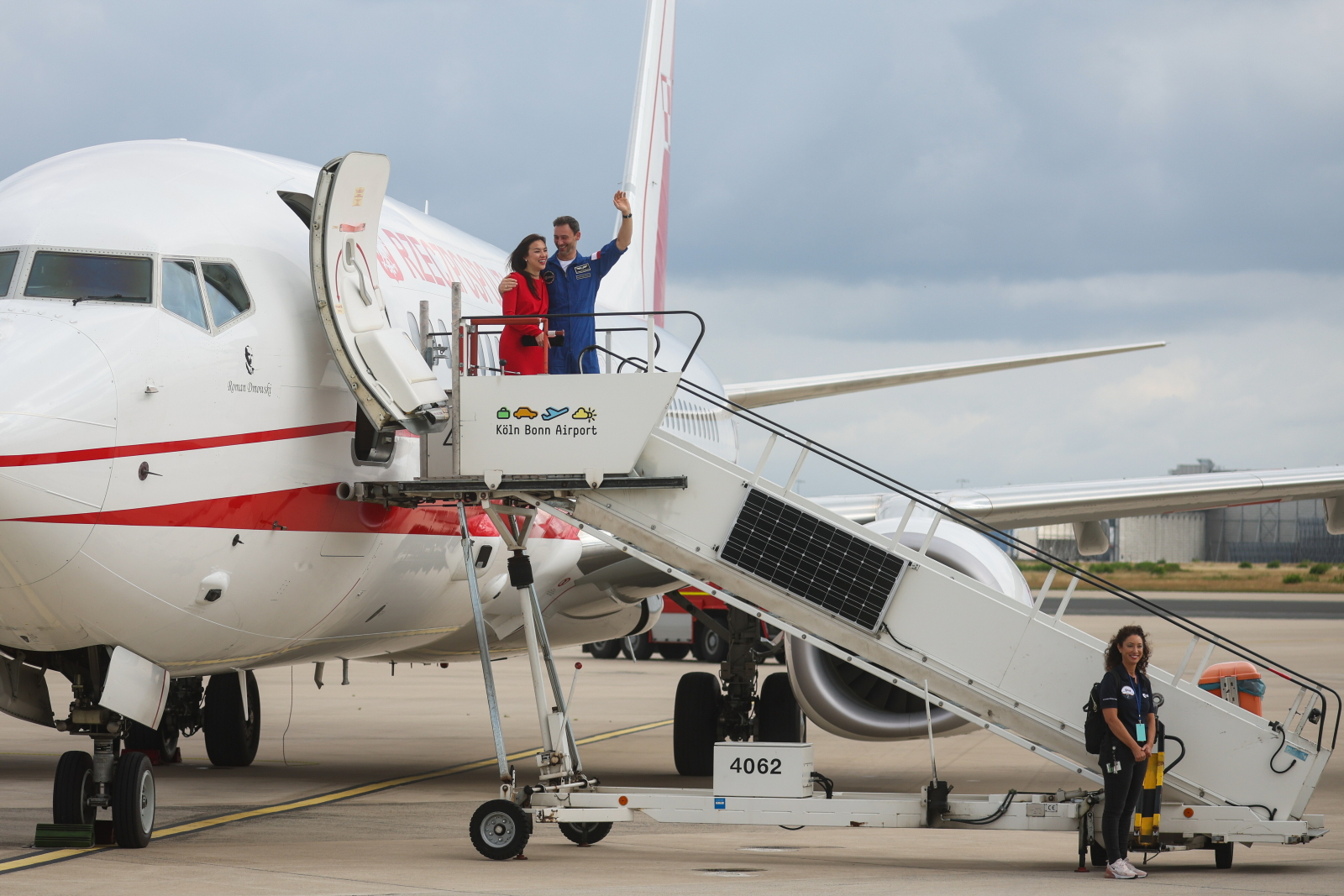
Polish astronaut Sławosz Uznański-Wiśniewski has said there is “an incredible amount of work to do” following his return from the International Space Station (ISS), marking the end of a historic 20-day space mission.
Landing in Cologne on a special government aircraft carrying the Axiom-4 mission crew members, the astronaut was welcomed by supporters, family, and officials.

Uznański-Wiśniewski, who spent 18 days aboard the ISS, was accompanied on the journey from the United States by his wife, Civic Platform MP Aleksandra Uznańska-Wiśniewska, and a medical team.
Briefly greeting a crowd of several dozen people gathered on the tarmac, many waving Polish flags and holding welcome signs, he then told reporters: “I have an incredible amount of work to do. (...) I return with a head full of ideas on how to capitalise on this mission and build our future. I feel that the real work is just beginning', he said.

He added: 'This is an incredible moment in history, an incredible moment for us to seize this opportunity to build our future'.
– Jestem przekonany, że mamy niesamowity ogrom pracy do wykonania. (…) Wracam z głową pełną pomysłów, jak wykorzystać tę misję i zbudować naszą przyszłość. Wydaje mi się, że prawdziwa praca się dopiero zaczyna – mówił.
Describing the IGNIS mission as “probably the most difficult challenge I had ever faced,” Uznański-Wiśniewski said the experience was also the most important of his life.
“The Earth is big, bright, beautiful from above, incredibly blue. There are many more oceans and clouds than I imagined,” he said.
The astronaut reported feeling in good health following the mission. “Good, even very good. I cannot complain about anything,” he said.
The Axiom-4 crew — consisting of Uznański-Wiśniewski (Poland), Peggy Whitson (USA), Tibor Kapu (Hungary), and Shubhanshu Shukla (India) — returned to Earth aboard the SpaceX Dragon Grace spacecraft, which splashed down in the Pacific Ocean near San Diego on July 15.
According to ESA, the crew orbited Earth 230 times and traveled approximately 13 million kilometers.
At the DLR’s Envihab research facility in Cologne, ESA’s space medicine team will monitor Uznański-Wiśniewski’s health over the next week as he readjusts to Earth’s gravity.
The same physician who accompanied him during launch and re-entry will oversee the recovery process.
Uznański-Wiśniewski, who was greeted at the airport by colleagues from ESA and the Polish Space Agency (POLSA), thanked the approximately 500 people who contributed to the success of the IGNIS mission. “Without you, the mission would not have been possible,” he said. PAP - Science in Poland
abu/ bar/ mow/













